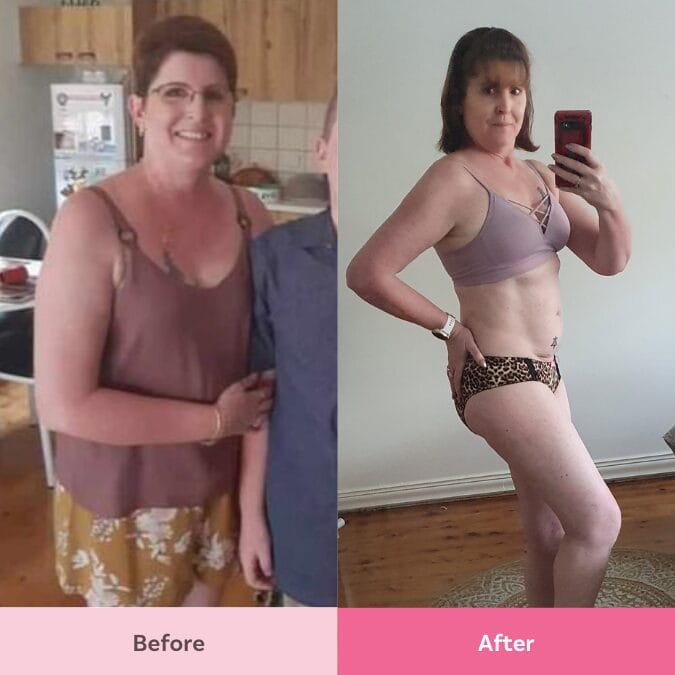The things nobody tells you about perimenopause
Most women are aware about menopause, but the lead up to this change, known as perimenopause, is often misunderstood.
Most women are aware about menopause, a.k.a. when we stop ovulating having producing periods. But the lead up to this change, known as perimenopause, is often misunderstood. Early symptoms of perimenopause are wrongly mistaken for stress, anxiety, ageing and depression.
Common symptoms include period changes, sleeping problems, hot flushes, anxiety, weight gain, low mood and night sweats, with women typically experiencing a combination of five symptoms during the early stages.
Expert explains more about perimenopause
Sarah McLauchlan is not your average naturopath. She drinks coffee, hates calorie counting with a passion and is all too familiar with the experience of mum burnout. After she got frustrated with feeling sweaty, anxious and irritated, she decided to get back control of her health using personalised nutrition.
In fact, Sarah has dropped nearly 20kg and most of her perimenopause symptoms included hot flushes, fatigue and insomnia. Now she supports other women in their 40s as they navigate through the perils of perimenopause.

She explains how to know when you’re experiencing signs of perimenopause and how your hormones change during this transition.
“Menopause doesn’t just happen to ‘older women’, changes actually start in your mid 30s,” she says. “For some, they may notice changes once they’ve had babies, either after their first or their second”.
“You may have changes to your period cycle or the length of your cycle. You may have new symptoms like a headache, feeling sweaty, hot flushes, panic attacks or anxiety around your time of your month.”
Perimenopause can start in your mid 30s and last into 40s

This transitional time ahead of menopause is what we are referring to when we talk about perimenopause. It can start with sudden changes, or it can be smaller changes over a long time. It can start mid 30s and last into 40s. For the majority of women, they notice things begin to ramp up in their 40s.
You will know you are in full menopause and not in the perimenopause stage when you’ve not had a period for around 12 months. This transitional time ahead of menopause is what we are referring to when we talk about perimenopause.
It can be sudden changes, or it can be small changes over a long time. It can start mid 30s and last into 40s. For the majority of women, they notice things begin to ramp up in their 40s.
“It’s like going through puberty backwards. There’s a lot of change and our hormones can be erratic,” says Sarah. “We should make sure we are giving ourselves grace. Support from our partners and friends will make huge difference as we go through this time”.
“Interestingly, I find that cultures which value mature women for their wisdom and life experience, don’t suffer the same through menopause as we do in western culture.”
How oestrogen and progesterone levels change
During menopause, our oestrogen and progesterone levels change. These fertility hormone changes are the reason we feel like we are on a rollercoaster, as they spike then crash down.
“That’s why we notice big shifts in our cycle, it’s because oestrogen levels go up before heading down. Hormones are a rollercoaster – one minute up, the next you are down,” explains Sarah.
“When oestrogen is high like that, it can that make us feel aggressive, irritated and raging. It’s the same hormonal imbalance that teenagers go through, as their brains are changing and rewiring. It’s the same when you are going through perimenopause. Your brain is very addicted to oestrogen, and this is why we get brain fog and can’t concentrate or focus.”
How to keep your emotions in check

During perimenopause, there are lots of physical changes but, there are also emotional feelings to deal with as well.
“Western society values women for their ability to reproduce as well as their youth,” says Sarah. “When you move away from that, it can feel like a bit like, ‘what is my purpose?’ It’s important to find things to do that help you feel stimulated and give you purpose.”
How nourishing yourself helps balance your emotions
To help you balance your emotions and the symptoms of perimenopause, you should make sure you are nourishing yourself with three meals a day and not skipping meals.
“By fuelling ourselves, we are allowing our body to make the hormones required to help metabolise itself,” says Sarah.
“You could try a couple tablespoons of flaxseed or linseed, add it to your smoothie. This will help stabilise you. Cinnamon is also great for our blood sugar levels. The last thing you want to feel during this time is hangry”!
“Make sure you are also getting enough sleep. Go to bed before 10.30pm as it’s good for the nervous system and hormones. Sleep is difficult when you are going through perimenopause. Go to bed 30 minutes earlier than usual, it is the biggest gift can give yourself. Sleep is the greatest act of self-care. Give yourself time, grace, lots of space and you will get through it.”
Here’s a quick recap about what Sarah explained about perimenopause:
- Perimenopause is often wrongly mistaken for stress, anxiety, ageing and depression.
- It can start in your mid 30s, after you’ve had children
- You may notice changes in your period cycle
- During menopause, our oestrogen and progesterone levels change. They can spike then crash
- Nourish yourself with healthy food. Don’t skip meals. Try flaxseed and cinnamon to help you stabilise your hormones.
- Make sure you are getting between 7-8 hours sleep a night.
Get access to hormone balancing recipes, gentle Yoga, and meditations in our 3 day menopause program
Our three-day plan will help you smooth the hormone fluctuations; so you can feel calm, confident and comfortable in your body.Our comprehensive 3 day program, will provide you with:
- Meal plans using natural ingredients with hormone balancing properties, including recipes for 3 main meals & 3 healthy snacks per dayGuided breath-work programs designed to improve oxygen to the brain to counter stress and brain fog, so you’ll feel calmer and clearerGuided Yoga, Pilates & Meditations to improve energy, digestion, Pelvic floor and symptoms of PMSPodcasts and info-blogs from psychologists, nutritionists and our expert Wellness Team helping you to understand menopause and how to manage it smoothlyEasy to follow 3 day program guides you on when to take each step to make things super simple and effectiveEverything at your finger tips you can easily access the program from your Healthy Mummy account on your smart device ACCESS THE 3 DAY PLAN HERE









